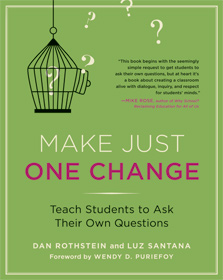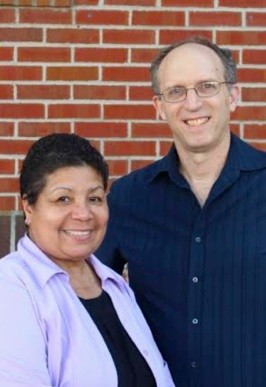Hello again from the Right Question Institute. A number of notable articles about fostering inquiry and curiosity in the classroom have popped up in the past couple weeks, and we’re here to share them with you. Take a look at the links below and then let us know your thoughts: comment at the bottom of this post, tweet at us on Twitter, or find us on Facebook to get the conversation started. We’re always interested in hearing your commentary on these important issues in education.
- In a presentation at the Denver Teachers TEDx conference, Grant Lichtman recounts his journey across the country to diagnose the problems facing schools today. 64 school visits and thousands of miles later, Lichtman had learned that although education reform is a messy and often uncomfortable business, this should not intimidate us into silence and stagnation. He ends his talk with a call to arms, recommending that teachers embrace the unknown in their lessons and allow their students’ curiosity to lead the way.
- In “How curious are your students?”, Tom Schimmer argues that educators should be examining “each lesson through the lens of curiosity” and constantly asking themselves, “How curious will my students become as a result of this lesson?” Doing so requires “purposeful thought and action,” he writes, but doesn’t have to completely alter one’s teaching practice. As we have seen and heard time and time again in our work with educators, even a small change like implementing the Question Formulation Technique (QFTTM) can make a huge difference in the classroom.
- Question asking is an important part of helping students conduct research, writes librarian Veronica Arellano Douglas in her article “When the Question Means More Than the Answer.” She notes, “a good pointed question reveals a strong grasp of a subject, the ability to think critically about an argument or claim, and an intellectually curious approach to the research process.” Research projects are just one instance in which the ability to ask questions is invaluable, and Douglas argues librarians should be at the forefront of fostering these skills.
- Deborah Owen of Convergence in the Commons recently posted about “Honoring Student Interests.” She details her experience using the QFT and comes to the conclusion that in helping students “ask questions that relate to their own experiences and interests, we not only teach them the life-long skills of knowing how to ask questions and take a stand, but we also honor what they bring to the learning table.” According to Owens, the QFT has helped her students “move from simple engagement-in-the-moment, to personal, intrinsic motivation,” something we always like to hear.
Happy reading, and as always we welcome your thoughts and comments. Two announcements before we sign off:
- We’re giving away a free copy of our book, Make Just One Change, to ten lucky winners. You can enter here, or if you’ve already read the book, head on over to our GoodReads page to rate it or write a review.
- Our summer seminars in Boston, LA, and Chicago are just around the corner, and space is filling up. Reserve a seat now to learn about the QFT and how to foster inquiry in your classroom.
Have a great week!




Speak Your Mind